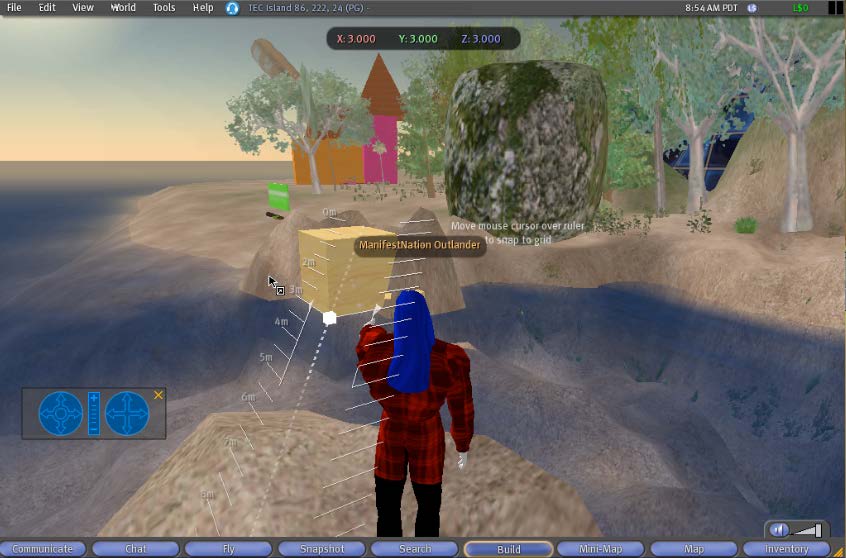Dissertation Project, Sneha Veeragoudar Harrell
Design-based research utilizing a critical and constructionist pedagogical philosophy in an alternative high school setting to study mathematical agency, computational literacy, and identity.

Publications
Veeragoudar Harrell, S., & Abrahamson, D. (2010). Second Life Unplugged: A design for fostering at-risk students’ STEM agency. In H. Gazit, D. L. Garcia, G. LeMasers, & L. Morgado (Eds.) The metaverse assembled
[Special issue]
. Journal of Virtual Worlds Research.
ABSTRACT: At an alternative high school serving predominantly at-risk underrepresented students evicted from mainstream education, we designed and implemented Fractal Village, a critical-constructionist computational and mathematical pedagogy learning environment. Fractal Village, instantiated in the virtual world “Second Life,” constituted an empirical environment to research our emergent model of mathematical/computational agency (m/c) as well as an intervention aiming to foster such agency. Key research objectives were to: (1) study relations amongst cognitive, affective, material, technological, and social factors that would contribute to individual development of m/c agency; and (2) delineate design principles for fostering m/c agency. The student cohort engaged collaboratively in virtual world imaginative construction activities each manifesting generative themes (Freire, 1968), to which the designers-as-teachers tailored mathematical and computer-science concepts, such that students appropriated the STEM content apropos of tackling their own emergent construction problems. We argue that to build agency, students must develop both skills and dispositions—a spiraling inter-constructive growth—and articulate a developing methodology for fostering agency development. We conclude that we can, and must, engage at-risk youth by helping them to build STEM-oriented identities, engaging their a priori m/c agency, and customizing skills and dispositions-related classroom discursive supports.
Veeragoudar Harrell, S., & Abrahamson, D. (2007). Computational literacy and mathematics learning in a virtual world: Identity, embodiment, and empowered media engagement. In C. Chinn, G. Erkens, & S. Puntambekar (Eds.), Proceedings of the Computer Supported Collaborative Learning (CSCL) Conference (Vol. 8, Part 1, pp. 264 – 265). New Brunswick: NJ: Rutgers University. CD-ROM.
ABSTRACT: We are engaged in the on-going development of a computer-supported collaborative learning environment within a virtual world and use it as a setting for studies exploring relationships between student mathematical cognition, computational literacy, and identity. Our design research is informed by the work of Gee (video games), diSessa (computational literacy), Cole (mediated collaboration), Abrahamson (embodied design for mathematics learning), and Lee (cultural modeling). Within the constructed virtual ecology, we are conducting an ethnographic study of a technologically enabled learning environment with real students bearing virtual identities. The participants are physically remote but embody characters with personae of their own making in playful activities that foster intrinsic motivation and bear mathematical and computational integrity that transcends the medium. Collecting both real and virtual data of a group of at-risk urban high-school students working in Teen Second Life, we examine for changes in participants’ cognitive–affective dispositions toward mathematical practice and identity.